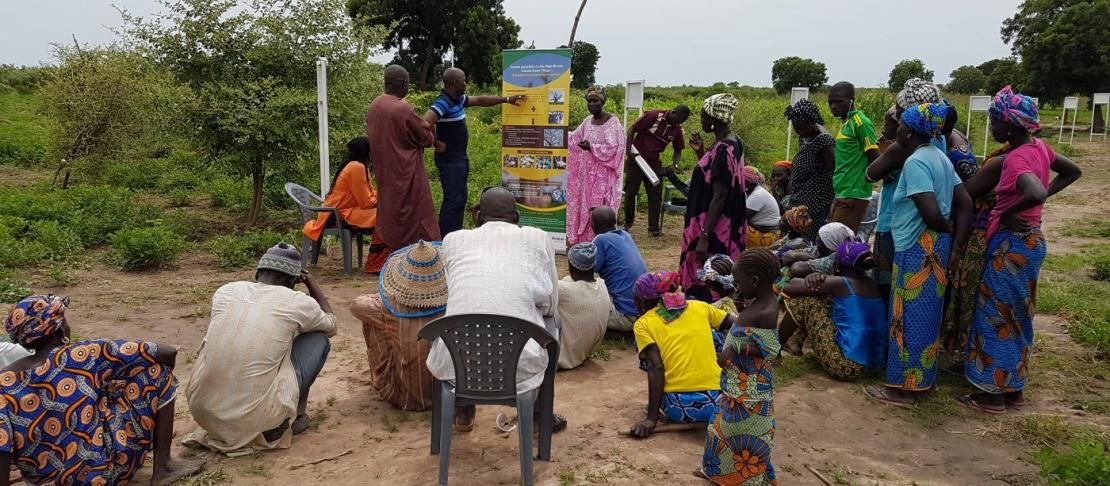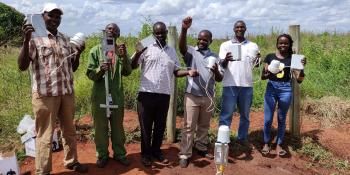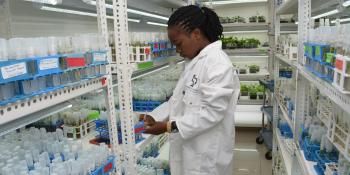Lessons learned from farmers in Senegal

World Food Programme's interview with Robert Zougmore
On the sidelines of the United Nations COP22 conference in Marrakech, Morocco, the World Food Programme (WFP) USA requested the CGIAR Research Program on Climate Change, Agriculture and Food Security (CCAFS) to share its experiences about the Climate-Smart Village (CSV) approach. In an interview, Dr Robert Zougmoré, the Program Leader for the CCAFS West Africa region explained how the CSV approach offers a platform for rural communities to be aware and adopt climate-mart technologies and practices that could simultaneously increase agricultural productivity and livelihood income, improve their adaptive capacity to climate change while also mitigating its effects wherever possible.
To a question about what the farms and the farmers look like in the CSV of Daga Birame in Senegal, Dr. Zougmore answered:
We emphasize the management of climate-related risk for these rural communities, especially for agricultural production. So in a given village, we try to use climate as an entry point to guide the decisionmaking about what to do to lessen climate risk and crop failure. It’s a participatory process through which we provide knowledge on climate information to the communities with agricultural extension services. Together, we make a sort of diagnosis of what are the climactic crosswinds, what are the current opportunities in the village in terms of technology and practices. This means farmers will suggest their own practices to face these climatic risks, but also researchers that are among the team will suggest what research can bring in. And together, the choice of promising technologies and practices are chosen for testing by the communities.
Read the original article and listen to the podcast: From Senegal to Marrakech: What Climate-Smart Villages Can Teach the World
Dansira Dembele is communications assistant at CCAFS West Africa



